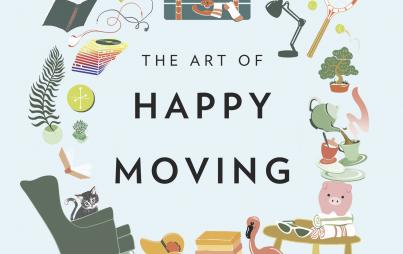
We tried too hard, out of some misplaced sense of lady-love and feminism, when we should have let one another go.
Our friendship was over long before that night I hurt her feelings because she had hurt mine.
I stood in the middle of a crowded concert venue, swaying and sweating and seething.
I had just been published in a respected, Pulitzer Prize-winning newspaper and my best friend was supposed to meet me to celebrate.
I had hugs and shots and dancing planned, and there was no one else I wanted to hug and take shots with and dance with. I searched for her short frame through pulsating bodies, desperate to find her and a sign that she was still my person.
But she wasn't coming.
So, I was swaying and sweating and seething and saying things I shouldn’t be saying. My anger took over my extremities and my fingers were texting words only my vexed disappointment seems to understand.
Pain and sadness and fury forced the syllables together, threading mean-spirited words through the eye of awful sentences — until there was nothing but a string of hatred vomited from my fingertips and forever displayed on a dimly-lit screen:
You're jealous.
You're selfish.
You're fake.
I’m finished.
Our friendship ended that night, in spectacular, dramatic, and vindictive fashion. Other than a small-yet-defiant apology the next day, that was the last I ever spoke to my former best friend.
We have been in the same room every now and again, thanks to lasting mutual friendships that force us to ignore one another; but other than that, we’re ghosts in one another’s lives, figments of a former friendship that dwindled into the ether where back then and once was and used to reign supreme.
I’ve spent a significant amount of time writing about the moments we shared and combing through what went wrong in a friendship that felt more like a natural sisterhood than a voluntary relationship. The moments I missed. The moments we’ll never have.
I’ve forced myself to feel bad about losing a close friend because women aren’t supposed to walk in and out of one another’s lives. That’s for men.
We’re used to romantic relationships fantastically floundering, but friendships are supposed to last. They’re supposed to stand steady. They’re supposed to stick to our rib cages and expand when we hold our breath in times of trouble or fear or pain.
Women are told to power through difficult moments — white-knuckling our way into the future side-by-side, constantly supportive and always united — to prove that we love our fellow women, we love friendship, and we're loyal to our respective gender.
But the truth is, I don’t feel bad.
Our friendship could have ended in a much more responsible manner, something we both deserved but couldn’t seem to give one another, but it was undoubtedly meant to end. While I am acutely aware that I made mistakes and failed a former friend in ways I cannot change, I also believe that mistakes were easily made and failures were easily had because we forced a relationship that no longer made sense.
We kept trying, when the smarter, kinder, more responsible course of action would have been to simply stop.
Our friendship was over long before that night I hurt her feelings because she hurt mine. Our commonalities were evaporating, we didn’t see one another as often, and I’m fairly certain we didn’t like one another anymore.
While growing up, we grew apart — but instead of seeing that natural division as a normal, common and positive part of adulthood, we grew scared and self-conscious and defensive. What does this mean about us, as women? Why can’t we continue to love one another? Are we bad friends? Are we bad people?
We might as well have been a married couple staying together for the kids, except that our marriage was a college friendship and the kids were our preconceived notions of feminism, friendship, and womanhood. We were awkward and uncomfortable around one another, but we forced smiles and staged hugs because we wanted to be better.
We wanted the honeymoon phase back, with beer pong and late nights and hung-over brunches and study sessions and bad dates that we counteracted with take out and shitty TV.
We hung onto the idea of us like we held onto one another when I moved away for a year; listening to music as she drove me to the airport, holding hands and defiantly staring the inevitable in the face; telling one another it wouldn’t be that bad.
But it did get that bad. While I couldn’t realize it in my swaying, sweating, seething moment of rage and sadness, I finally realized that it wasn’t bad because I held grudges and she wasn't supportive: It was because we didn’t allow one another the freedom to go our separate ways. We tried too hard, out of some misplaced sense of lady-love and feminism, when we should have let one another go — long before she didn’t show and I was unkind.
Friendships end. People change. We stop seeing the people we used to hang out with in college or grew up with or have known since diapers; we stop having things in common as we navigate our lives.
It isn’t a failure. It isn’t a sign of weakness. It is a sign of growth — and the evolution of our personal lives comes at a cost.
She wasn’t jealous.
She wasn’t selfish.
She wasn’t fake.
We were both just finished.








